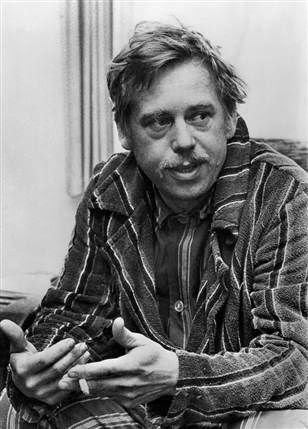Private guide in Prague
JAN
HUS ( 1369 - 1415)
One
of Wycliffe’s followers, John Hus, actively promoted Wycliffe’s
ideas: that people should be permitted to read the Bible in their own
language, and they should oppose the tyranny of the Roman church that
threatened anyone possessing a non-Latin Bible with execution. Hus
was burned at the stake in 1415, with Wycliffe’s manuscript Bibles
used as kindling for the fire. The last words of John Hus were
that, “in
100 years, God will raise up a man whose calls for reform cannot be
suppressed.” Almost
exactly 100 years later, in 1517, Martin Luther nailed his famous 95
Theses of Contention (a list of 95 issues of heretical theology and
crimes of the Roman Catholic Church) into the church door at
Wittenberg. The prophecy of Hus had come true!
Jan
Hus
was a religious thinker and reformer, born in Southern Bohemia in
1369. He initiated a reform movement based on the ideas of
John Wycliffe. His followers became known as Hussites. The Catholic
Church did not condone such uprisings, and Hus was excommunicated in
1411 and burned at the stake in Constance on July 6, 1415, having
been condemned by the Council of Constance, in an unfair trial.
Like Martin Luther, he had to earn his living by singing and performing humble services in the Church. He felt inclined toward the clerical profession, not so much by an inner impulse as by the attraction of the tranquil life of the clergy. He studied at Prague, The learned quotations of which he boasted in his writings were mostly taken from Wycliffe's works. He was said to have had a hot temper. In 1393 he received his bachelor of arts, in 1394 bachelor of theology, and in 1396 master of arts. In 1400 he was ordained priest, in 1401 he became dean of the philosophical faculty, and in the following year rector. In 1402 he was appointed also preacher of the Bethlehem Church in Prague, where he preached in the Czech language.
 |
| Bethlehem Church |
The Council of Constance
On
Dec. 4, 1414, the pope had entrusted a committee of three bishops
with a preliminary investigation against Hus. The witnesses for the
prosecution were heard, but Hus was refused an advocate for his
defense. His situation became worse after the catastrophe of John
XXIII., who had left Constance to evade the necessity of abdicating.
So far Hus had been the captive of the pope and in constant contact
with his friends, but now he was delivered to the archbishop of
Constance and brought to his castle, Gottlieben on the Rhine. Here he
remained seventy-three days, separated from his friends, chained day
and night, poorly fed, and tortured by disease.
Condemnation
and Execution of John Hus
The condemnation took place on July 6, 1415, in the presence of the solemn assembly of the council in the cathedral. After the performance of high mass and liturgy, Hus was led into the church. The bishop of Lodi delivered an oration on the duty of eradicating heresy; then some theses of Hus and Wycliffe and a report of his trial were read. He protested loudly several times, and when his appeal to Christ was rejected as a condemnable heresy, he exclaimed, "O God and Lord, now the council condemns even thine own act and thine own law as heresy, since thou thyself didst lay thy cause before thy Father as the just judge, as an example for us, whenever we are sorely oppressed."
 |
| The Council of Constance in 14145 |
Almost
exactly 100 years later, in 1517, Martin Luther nailed his famous 95
Theses of Contention (a list of 95 issues of heretical theology and
crimes of the Roman Catholic Church) into the church door at
Wittenberg. The prophecy of John Hus had come true!
 |
| From 1915 Jan Hus Statue in Old Town Square, Prague Visit Prague with our private guide: www.visita-praga.eu |






























